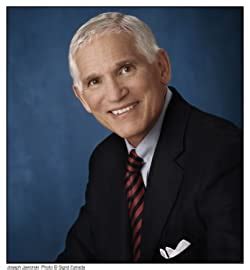A Quote by Marcus Aurelius
Reflect frequently upon the instability of things, and how very fast the scenes of nature are shifted. Matter is in perpetual flux. Change is always and everywhere at work; it strikes through causes and effects, and leaves nothing fixed and permanent.
Related Quotes
Nothing comes to pass in nature, which can be set down to a flaw therein; for nature is always the same, and everywhere one and the same in her efficacy and power of action: that is, nature's laws and ordinances, whereby all things come to pass and change from one form to another, are everywhere and always the same; so that there should be one and the same method of understanding the nature of all things whatsoever, namely, through nature's universal laws and rules.
Man is made for science; he reasons from effects to causes, and from causes to effects; but he does not always reason without error. In reasoning, therefore, from appearances which are particular, care must be taken how we generalize; we should be cautious not to attribute to nature, laws which may perhaps be only of our own invention.
Life is a flux, nothing abides. Still we are such fools, we go on clinging. If change is the nature of life, then clinging is stupidity, because your clinging is not going to change the law of life. Your clinging is only going to make you miserable. Things are bound to change; whether you cling or not does not matter. If you cling you become miserable: you cling and they change, you feel frustrated. If you don`t cling they still change, but then there is no frustration because you were perfectly aware that they are bound to change. This is how things are, this is the suchness of life.
There are two principles inherent in the very nature of things, recurring in some particular embodiments whatever field we explore - the spirit of change, and the spirit of conservation. There can be nothing real without both. Mere change without conservation is a passage from nothing to nothing. . . . Mere conservation without change cannot conserve. For after all, there is a flux of circumstance, and the freshness of being evaporates under mere repetition.
If things do not exist as fixed, independent entities, then how can they die? Our notion of death as the sudden expiration of that which was once so real starts to unwind. If things do not exist in their own right and are flickering rather than static, then we can no longer fear their ultimate demise. We may fear their instability, or their emptiness, but the looming threat of death starts to seem absurd. Things are constantly dying, we find. Or rather, they are constantly in flux, arising and passing away with each moment of consciousness.
One of the great mysteries of our current state of consciousness is how we can live in a world where absolutely nothing is fixed, and yet perceive a world of 'fixedness.' But once we start to see reality more as it is, we realize that nothing is permanent, so how could the future be fixed? How could we live in anything but a world of continual possibility? The realization allows us to feel more alive.
An Individual, whatever species it might be, is nothing in the Universe. A hundred, a thousand individuals are still nothing. The species are the only creatures of Nature, perpetual creatures, as old and as permanent as it. In order to judge it better, we no longer consider the species as a collection or as a series of similar individuals, but as a whole independent of number, independent of time, a whole always living, always the same, a whole which has been counted as one in the works of creation, and which, as a consequence, makes only a unity in Nature.









































